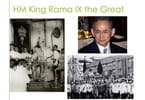The US Census Bureau reported that there are now more Americans aged 65 and older than at any other time in US history. On April 1, 2010 there were 40.3 million people age 65 and older, up 5.3% from 35 million in 2000 (and just 3.1 million in 1900).
The 65-and-older population jumped 15.1% between 2000 and 2010, compared with a 9.7% increase for the total US population. People age 65 and older now make up 13% of the total population compared to 12.4% in 2000 and 4.1% in 1900.
In March, 2004, the late Professor Anthony Marshall wrote in Hotel & Motel Magazine an article entitled, “Gray Matters: How to Profit from an Aging Marketplace.”
“The real joke this day and age is on hoteliers who don’t make their properties safe and comfortable for seniors. But many still don’t…” he said.
Another barrier to having a hotel that’s safe and comfortable for seniors is the erroneous perceptions held by staff and servers, that:
– People older than 55 can’t hear so you better speak loud.
– Everyone older than 60 has Alzheimer’s, so don’t waste any time having a conversation with them.
– Elderly guests like to be called condescending names such as “sweetie,” “dearie,” or “mom and pop.”
In order to reach this market, hotels must understand the needs and wants of the older traveler and provide services that appeal to them. A tour of scenic sports is of little value when most senior travelers must remain in the tour bus because the hike to the falls is uphill all the way. A couple celebrating their 50th wedding anniversary should not be turned off in the hotel lounge because the disc jockey plays only heavy rock-and-roll music. But you must also beware of preconceptions. Most seniors, for example, are more youthful and progressive in their thinking than people imagine. They are open to new ideas and are information-hungry. More than ever, seniors are using their computers, the Internet, and online sites to explore, plan, and book transportation, hotels, and travel.
Older Travelers’ Needs and Preferences
Prejudice against the elderly, which is characterized by rude behavior toward older persons, is fairly widespread. Direct-contact hotel personnel must be trained to work with the older traveler. The staff must be taught how to communicate with persons with weak eyesight or poor hearing or both.
Many prefer rooms with two beds and room locations on the lower floors near an elevator and fire stairway. Safety and security can be strong selling points. More than other travelers, older guests enjoy areas where they can gather to talk and socialize. Such rooms should generally be separate from the cocktail lounge.
Groups of mature travelers usually enjoy attending some kind of welcoming reception. You might meet them as they arrive to explain meal times and the hotel facilities and then offer coffee, lemonade, and home-baked goods. Most older persons also like to participate in organized entertainment after dinner, such as a trip to a local theater, sing-along, or a shopping excursion. Some hoteliers provide guide services for these activities and for day trips. All hotel guests would benefit from the following improvements:
In Guest Rooms
– Better lighting at the writing table, at bedside, in closet, at TV set, at room entry.
– Master electrical switch at bedside to control all room lights.
– TV remote controls that are easy to read, clear in direction, simple to operate, and hygienically clean.
– Blackout drapes and/or shades that actually keep light out.
– An alarm clock that is easy to program and read.
– Lamp switches at the base of the lamp where they can be easily seen and reached.
– Real clothes hangers in the closet along with irons and ironing boards.
– Descriptive printed materials that are well written, clearly printed, and large enough to read easily.
– Provide large-print directional instructions to fire exit stairways on the back of guestroom doors.
In Bathrooms
– Apply good non-skid material to both the bottom of bathtubs and the bathroom floor.
– Install well-placed and secure hand-holds and grab bars in bathtub/shower/toilet areas.
– Make sure the shower controls and the adjustable shower heads are easy to turn on and to adjust.
– Eliminate hot water surges and provide scald-proof hot water.
– Install easy-to-use faucet handles instead of knobs.
– Install night lights which won’t disturb sleeping but will provide safe night trips to bathroom.
– Install a magnifying mirror on an accordion bracket.
– Provide a UL-approved hair dryer with a wall-hung bracket.
– Supply better-quality, more absorbent towels in color.
– Make sure all shower curtains are long enough to reach well below the bathtub top.
– Provide bathroom amenities (shampoo, lotion, etc.) in containers which are easy to identify (with large print) and which have raised surfaces on the cap for easy turning when hands are wet.
In Corridors And Elevators
– Make certain that corridors are well-illuminated, especially over guest room doors to expedite the use of electronic door lock cards.
– Provide easy-to-read, well designed directional signs.
– Corridor exit signs should be installed close to the floor so that they won’t be hidden by rising smoke.
– Elevators should have clear and well-lit floor buttons with “Door Open” buttons easily located.
– Elevator door bumpers should retract readily when touched.
In Case of a Power Loss
– Provide flashlights, flares and glowsticks.
– Have plenty of bottled water, extra food, and supplies.
– Install back-up, gas-powered generators.
– Tie water-pump operations to the emergency system.
– Check and improve the seals on freezers and refrigerators.
Finally, heed the wise words of Tony Marshall: “It seems obvious to me that the best way to turn gray into pure gold these days would be to make all aspects of travel comfortable and safe for an aging population. All hotel planning and design groups should exploit this growing market and include senior input through all stages of development.”
Za više informacija o autoru ovog članka idite na: www.stanleyturkel.com.
ŠTA UZIMATI IZ OVOG ČLANKA:
- A tour of scenic sports is of little value when most senior travelers must remain in the tour bus because the hike to the falls is uphill all the way.
- Most older persons also like to participate in organized entertainment after dinner, such as a trip to a local theater, sing-along, or a shopping excursion.
- In order to reach this market, hotels must understand the needs and wants of the older traveler and provide services that appeal to them.






















